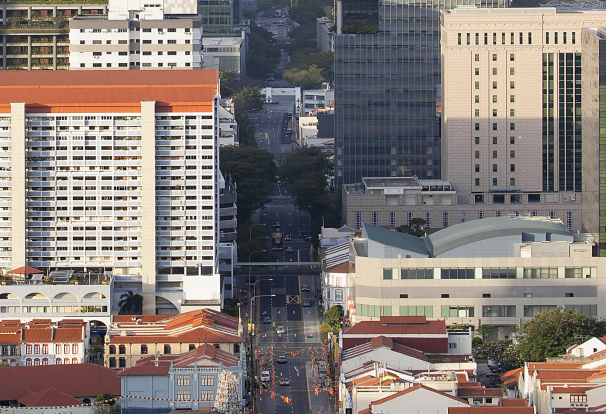
Outlook on real estate reaches an 8-year high at 7.1 points
But market players are growing worried about risks like rising interest rates and oversupply.
The NUS-REDAS Real Estate Sentiment Index (RESI) for the first quarter of 2018 continued to improve under the current buoyant market condition. Its Composite Sentiment Index rose from 6.9 in Q4 to 7.1 in Q1, a new historical high since this research started in the first quarter of 2010.
A score above five indicates improving market conditions, whilst a score below five indicate deteriorating conditions, the index noted.
The index said that developers’ sentiments have improved consecutively for ten quarters since the trough in 4Q2015. “Yet, the upturn momentum of sentiment indices appears to be slowing down quarter over quarter,” it added.
RESI’s Current Sentiment Index climbed from 6.9 to 7.2, whilst its Future Sentiment Index inched up from 6.9 to 7.0.
NUS’ Department of Real Estate/Institute of Real Estate Studies associate professor Sing Tien Foo commented, “The real estate market sentiment has been at the all-time high after showing 10 consecutive quarters of increases since 4Q2015. The improvements in the performance were broad-based and found in all sectors of the property markets. Prime and suburban residential markets showed the most robust performance in 1Q2018 supported by the strong take-up in new launches.”
Nearly all sectors have shown positive sentiment. Prime residential and suburban residential sectors have the largest current net balances of 63% and 68%, and future net balances of 67% and 74%, respectively, reflecting optimism in the two residential sectors.
A “current and future net balance percentage” indicates the difference between the proportion of respondents who have selected the positive options and the proportion of respondents who have selected the negative options.
The current net balance and future net balance of 51% and 66%, respectively, showed relatively strong performance for the office sector. However, the current balance and the future net balance for the prime retail sector were still negative at -16% and -5%, respectively, although the performance of the sector has improved.
The index said respondents viewed rising inflation/interest rates, excessive supply of new property launches, and government intervention in the market as the top three potential risks that may adversely impact market sentiment in the next six months.
Also read: Why it's too early to panic about property oversupply
According to RESI, 87.3% were concerned about rising inflation and interest rates in the next six months, increased from 74.2% in Q4. In view of new launches in the pipeline, 50.8% of the respondents were worried about the excessive supply of new properties. Compared to 59.7% in Q4, 49.2% of the respondents were still concerned about unexpected government intervention into the market.
Meanwhile, 26.5% and 55.9% of the developers indicated they would substantially increase or moderately increase new launches, respectively. Only 14.7% of them would hold the new launches at the same level in the next six months.
In terms of unit price change, 88.2% of the developers anticipated residential property prices to increase in the next six months. “Only 5.9% of them expected the residential property prices to hold at the same level, and 5.9% expected a drop in the prices,” RESI added.
One of the most talked about topics include development charges as 52% of the respondents and 62% of the developers indicated that the latest DC rate revision (an average of 22.8%) for non-landed residential properties is unusually high. “Despite the unexpectedly high rate hike, 65.1% of the respondents indicated that there would not be a significant cutback in collective sales activities in the next six to nine months. 52% and 16% of all the respondents felt the DC rate hike only has minimal impact or no impact on land acquisition volume,” RESI said.
It also noted that most agreed that residential property prices would increase in the year 2018. About 31.7%, 15.9% and 15.9% of the respondents indicated that residential property prices would increase by 5%, 8% and 10%, respectively.
In summary, 60.3% of all the respondents and 64.7% of the developers expected the residential property prices to increase by between 5 and 8%. In addition, 25.4% of all the respondents and 29.4% of the developers expected the property prices to increase by 10% and more.
























 Advertise
Advertise









